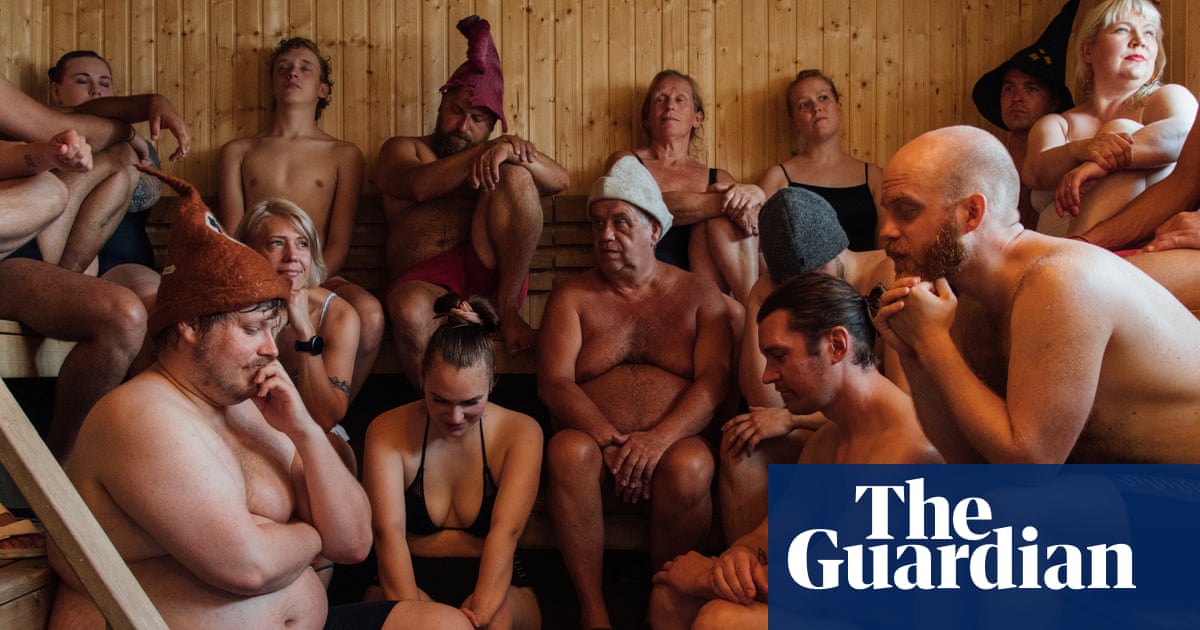I should not be surprised if an older sauna-goer asks me to scrub their back, says Alexander Lembke, as he talks me through the workings of Finland’s oldest working public sauna. “You just do it, help them. There you can see how deeply rooted the sauna is here in the community.” Usually Lembke, who describes himself as a “sauna classicist”, undertakes heating responsibilities (a seven-hour process that begins at 7am) at Rajaportti sauna in Tampere naked. But seeing as he has visitors, today he is dressed in swimming trunks and sliders, accessorised with a multitude of maritime-themed tattoos.
I have come to Finland to learn about its sauna culture, a tradition so valued that in 2020 it was inscribed on the Unesco list of the intangible cultural heritage of humanity. My starting place, Tampere, one-and-a-half hours by train north of Helsinki, has about 60 public saunas in a city of around 250,000 inhabitants, earning it the title of “sauna capital of the world”.
…
Janne Koskenniemi, the executive director of the Finnish Sauna Society, says: “You could say that we had a little bit of a dip in the popularity of saunas in the 70s or the 80s, even maybe in the 90s.” This he puts down to a surge in poor-quality saunas that were built in apartments (“You know a bad sauna when your head is burning and your feet are cold”). But now, rising numbers of communal saunas are being built in flats and there has been an increase in new public saunas. While some are directed at tourists, younger Finns, he says, are increasingly attracted by the physical relaxation and mental health benefits.



Low immigration country that has managed to keep it’s culture. Still has “third places” and a sense of community.
Probably goes more to explain it than saunas themselves.